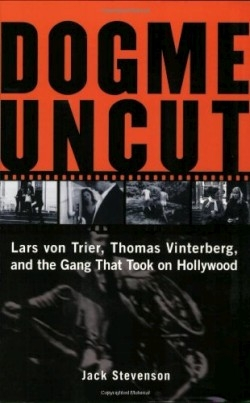Dogme Uncut
Lars von Trier Thomas Vinterberg and the Gang That Took on Hollywood
Since the halcyon days of filmmaking in the forties and early fifties, Hollywood films have become synonymous with vacuous and unimaginative production and direction. Except for a short period from 1968 to roughly 1975, films from the American Babylon have tended to be vehicles for particular stars; vapid teenage gross-out comedies; sentimental, empty-headed tearjerkers; or action-packed, fast-paced thrillers whose memory lasts as long as the movie’s final explosive special effect.
From the early 1960s, however, various artists-mostly foreign filmmakers, but also American independents like John Sayles-have been producing films that challenge the typical Hollywood multiplex fare, offering new directions in film style and substance.
Along with the French New Wave, spearheaded by Godard and Truffaut, Fassbinder’s German New Wave, and the films of John Cassavetes, a recent movement among Danish film directors has breathed new life into the cinematic form and provided some relief from the tiresome parade of Hollywood productions.
The author, a film historian who lives in Denmark, offers an eloquent account of this movement, which takes it name, “Dogme,” from its manifesto about film style and technique, issued in 1995 by directors Lars von Trier and Thomas Vinterberg. Their “indisputable set of rules,” which they call the “Vow of Chastity,” include: “The camera must be hand-held; the film must be in color; the sound must never be produced apart from the images; the director must not be credited.”
With these vows in hand, von Trier, Vinterberg, Susanne Biers, and Søren Kragh-Jacobsen produced a number of films that influenced American independent filmmaking in the late twentieth and early twenty-first century.
Stevenson narrates in detail the influence of the American New Wave and the French New Wave on the Dogme group. He then provides a definitive survey and plot synopsis of all thirty-three Dogme films. For example, Stevenson summarizes von Trier’s first Dogme film, The Idiots (1997), by observing that “the idiots go their own ways while the viewer is left sitting in the theater to ponder the result of this somewhat obtuse experiment.”
While some of these early Dogme films followed the rules of the Vow of Chastity, they did not always achieve commercial success, so that when Bier’s Open Hearts opened to modest profit, the rest of the Dogme group questioned her allegiance to the Vow. Stevenson also points out that with his forthcoming film, Dogville, starring Nicole Kidman, von Trier has been criticized for forsaking Dogme.
Stevenson’s elegant book provides an excellent introduction to these enigmatic yet powerfully influential filmmakers and their movement.
Reviewed by
Henry L. Carrigan
Disclosure: This article is not an endorsement, but a review. The publisher of this book provided free copies of the book to have their book reviewed by a professional reviewer. No fee was paid by the publisher for this review. Foreword Reviews only recommends books that we love. Foreword Magazine, Inc. is disclosing this in accordance with the Federal Trade Commission’s 16 CFR, Part 255.

